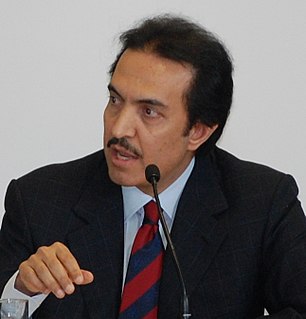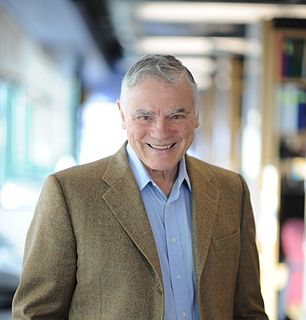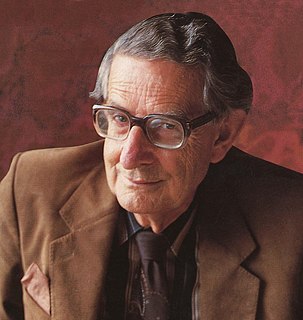A Quote by Nayef Al-Rodhan
Genome-based treatment, based on wider and cheaper availability of genome data, will provide new ways to customize the therapeutic protocol and enhance our control over diseases and medical treatment.
Related Quotes
An important finding is that by determining the genome sequences of an entire family, one can identify many DNA sequencing errors and thus greatly increase the accuracy of the data. This will ultimately help us understand the role of genetic variations in the diagnosis, treatment, and prevention of disease.
We will have to make a decision, as we go into new environments outside of earth, whether we want to drag along with us all our pathogens. We can, or we can't - it's up to us - but I consider that part of genome engineering is how we interact with the huge part of our genome which is our microbiome.
The question is, are there useful things that we can do with the results of a genome sequence that would bring benefit? And the answer is, today, should the majority of people go and have their genome sequenced? Probably not. But are there particular circumstances in which genome sequencing is really helpful? Yes, there are.
As a Christian, but also as a scientist responsible for overseeing the Human Genome Project, one of my concerns has been the limits on applications of our understanding of the genome. Should there be limits? I think there should. I think the public has expressed their concern about ways this information might be misused.
Recently, results of the Human Genome Project have shattered one of Science's fundamental core beliefs, the concept of genetic determinism. We have been led to believe that our genes determine the character of our lives, yet new research surprisingly reveals that it is the character of our lives that controls our genes. Rather than being victims of our heredity, we are actually masters of our genome.
The writings and the recommendations of the earliest medical scientists and the new breed of clinicians between the mid-fifteenth and early seventeenth centuries were based on the supposition that sufficient study and experimentation would elucidate not only the origins of disease, but its treatment as well.
For just a few dollars a dose, vaccines save lives and help reduce poverty. Unlike medical treatment, they provide a lifetime of protection from deadly and debilitating disease. They are safe and effective. They cut healthcare and treatment costs, reduce the number of hospital visits, and ensure healthier children, families and communities.
For just a few dollars a dose, vaccines save lives and help reduce poverty. Unlike medical treatment, they provide a lifetime of protection from deadly and debilitating disease. They are safe and effective. They cut healthcare and treatment costs, reduce the number of hospital visits and ensure healthier children, families and communities.
Our research shows that nearly 60% of recent offenders who engaged with a community-based alcohol programme did not go on to reoffend in the two years following treatment. Offenders given a community sentence including mental health treatment have also shown to be significantly less likely to reoffend.



































